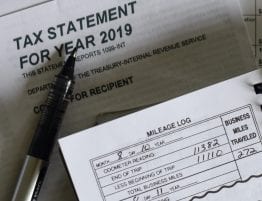With the lingering impacts of the coronavirus pandemic, it’s essential to stay informed about financial benefits that can alleviate some of the burdens during these challenging times. The changing tax landscape requires a fresh approach to tax planning for 2023. Our updated blog post discusses three key tax planning tips to help you navigate the current scenario and optimize your tax savings.
The 2022 tax filing deadline has passed, so it is essential that you know what your options are and act quickly. If you’re ready to tackle your back taxes today, schedule your free consultation now.
Three Tax Planning Tips for Taxpayers in 2023
File your Taxes Promptly for 2022 and Quarterly for 2023
Filing your taxes promptly is crucial to secure any refund you may be owed or to understand your tax liability for effective financial planning. With the IRS still recovering from the pandemic-related disruptions, filing electronically for faster processing is recommended. Avoiding paper returns is advisable since the IRS is still adjusting its operations. By filing early, you can expedite the refund process or plan ahead if you owe taxes, ensuring a smooth financial journey.
Maximize Retirement Contributions for Long-term Benefits
Retirement contributions offer significant tax advantages and help secure your financial future. Assess your financial situation carefully and consider maximizing your contributions to tax-advantaged retirement accounts such as 401(k)s, IRAs, or Roth IRAs. Contributing to these accounts reduces your taxable income for the current year and allows for tax-free growth or tax-free withdrawals in retirement. Be mindful of the contribution limits and eligibility requirements specific to each type of account to optimize your tax savings.
Capitalize on Strategic Capital Gains and Losses
The stock market’s recovery since the onset of the pandemic presents an opportunity to assess your investment portfolio strategically. While it’s generally advisable to avoid making investment decisions based on panic or short-term market fluctuations, consider selling specific investments that were already earmarked for disposal. By selling these investments while their value is down, you can utilize capital losses to offset any capital gains, reducing your overall taxable income. Any excess loss can also offset up to $3,000 of ordinary income, providing further tax benefits.
As we navigate the tax landscape in 2023, it’s important to adapt your tax planning strategies to optimize your financial benefits. Promptly filing your taxes, maximizing retirement contributions, and strategically managing capital gains and losses are three essential tips for Americans.
However, it’s crucial to remember that tax planning should be personalized to your unique circumstances. Consult with one of our qualified tax professionals to ensure compliance with the current tax laws and regulations and receive tailored advice based on your specific situation. By implementing these tips and staying informed, you can make informed decisions to maximize your tax savings and secure your financial well-being in the face of evolving challenges.
Fill out the form for a free and confidential consultation.









